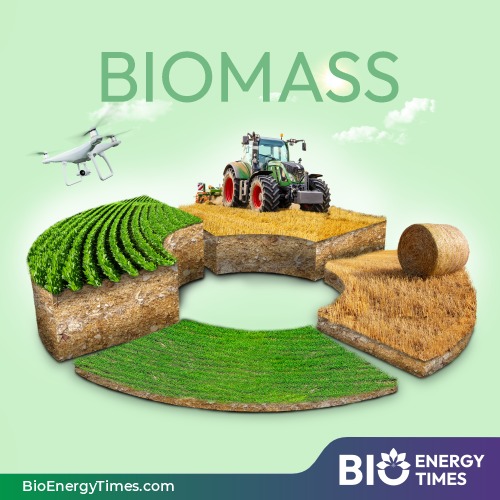NewEnergyBlue, a clean-technology company specializing in biomass refineries that convert agricultural waste into highly decarbonized biofuels and biochemicals, has completed its acquisition of Inbicon biomass-conversion technology from Ørsted, a Danish renewable energy firm. This acquisition broadens NewEnergyBlue’s global operations and includes the ownership of Inbicon’s international patent portfolio, along with global licensing rights. Previously, the licensing agreement was limited to the Americas.
“Corn stalks from America, wheat straw from Canada and Europe, sugar bagasse in Brazil and India—all over the world, billions of tons of botanical waste are left behind after annual harvests,” says Albury Fleitas, President of NewEnergyBlue. “And on the horizon, perennial grasses grown in the planet’s expanding arid regions where food crops no longer thrive. They’re all ideal feedstocks for our biomass refineries, more opportunities than ever to replace fossil fuels and chemicals with next-generation renewables.”
According to the press release, the process design of NewEnergyBlue’s biomass refineries utilizes Inbicon’s biotechnology to fine-tune process thermodynamics and precisely control chemical reactions without the use of caustic additives. One of the by-products is clean water. This innovative design aligns with global environmental and sustainability goals crucial for this decade.
Developed in Denmark 25 years ago, Inbicon technology has proven its effectiveness through multiple critical scale-ups. In 2009, Inbicon’s first biomass refinery in Kalundborg, Denmark, processed local wheat straw and demonstrated the commercial viability of second-generation (2G) ethanol for sustainably decarbonizing auto and aviation fuels.
NewEnergyBlue’s upcoming biomass refinery, set to open in Mason City, Iowa in 2026, will annually convert corn stalks into 2G bioethanol and clean lignin. The bioethanol will be used for low-carbon auto fuels and converted into sustainable plastics by Dow Chemical.
Clean lignin, a by-product, is highly valuable for producing polymers and binders, replacing traditional oil-derived products in manufacturing and road surfacing.
The bioconversion technology and process have attracted global interest from leading international companies and scientists seeking to scale up their technologies using the refineries’ commercial sugar and lignin streams. Following the commissioning phase, a biomass tech campus will be established at Freedom.
Fleitas stated, “We are committed to removing fossil fuels from energy, oil from plastics, and reducing atmospheric heat. We are partnering with international entities that possess the financial strength, agility, and foresight to achieve these goals.”
To read more about Biomass Industry News, continue reading BioEnergyTimes.com















